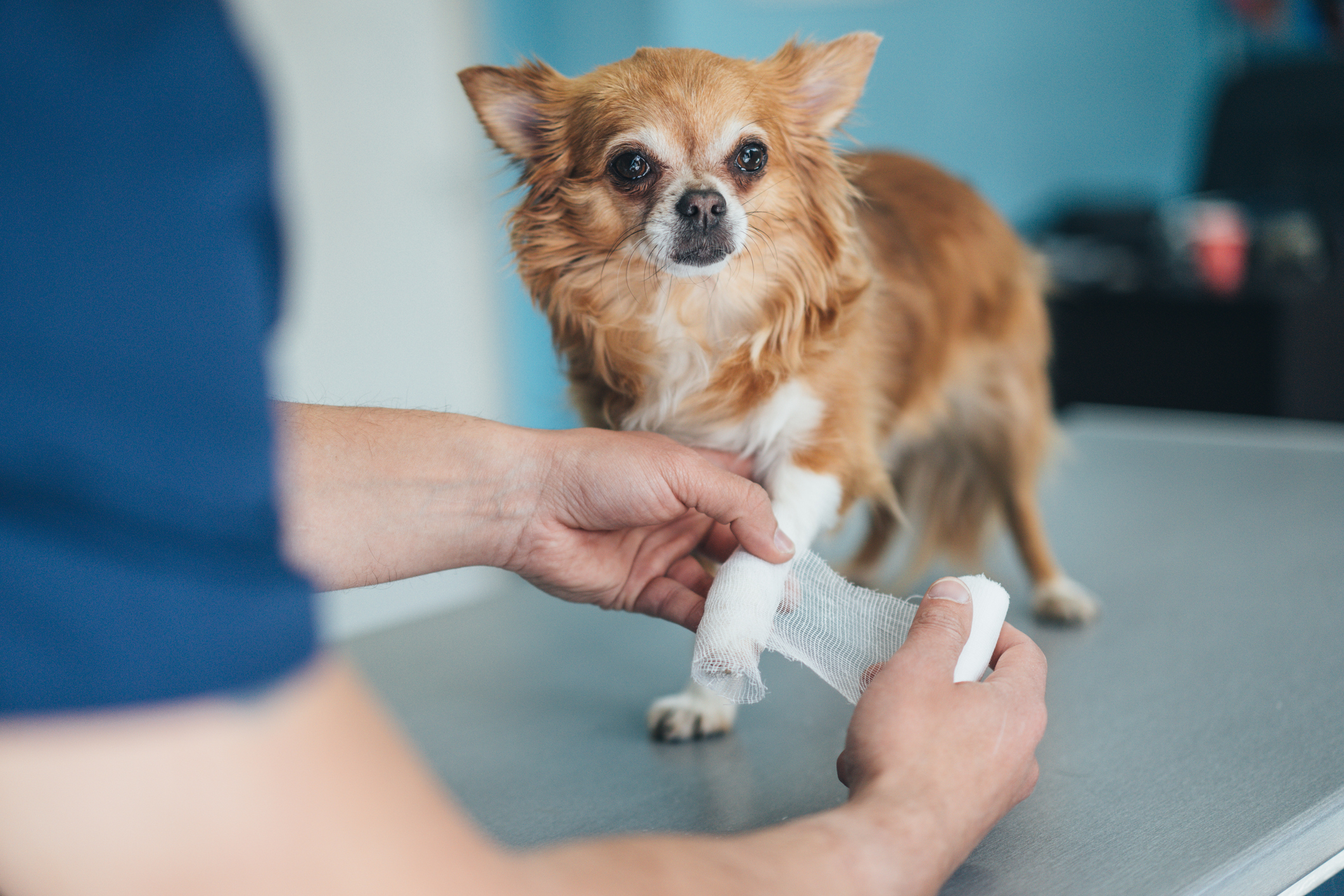
Do This Immediately if Your Pup Suffers from a Dog Bite!
It’s every dog parent’s nightmare: You’re at the park with your pup having a good time when a scuffle between your dog and another breaks out, leaving your dog with a bite. Not only are dog bites painful for your pooch, they’re also extremely scary when you don’t know the other animal.
In this situation, it’s normal to feel overwhelmed and not sure of what to do next. But pet owners need to act fast to get their dog the help they need. Here’s what you should do if your dog is bitten by another dog.
Act quickly immediately
No matter where you are when the dog bite occurs, the first thing you need to do is remove your dog from the situation. This might be at the dog park with lots of other dogs around, in your neighborhood or even in your own home with your family pets. Priority number one should be getting your dog to a quiet space by themselves.
If your dog is able to walk after being bitten, let them and don’t crowd them, or they might lash out at you. Take note of their condition and whether they can walk properly. If they can’t walk on their own, carefully pick them up and carry them to safety.
After your dog has been moved out of the way of danger, take stock of the situation. Whose dog bit your pup? Are there major disease concerns to think about?
- If the bite came from your own dog, consider which pets are up to date on their vaccines or have diseases. If all your pups are protected against things like rabies, your dog will likely not need to be quarantined or need special treatment for disease.
- If the bite came from a dog whose owner was present, gather their information for insurance and/or legal purposes. Note whether the dog currently has any diseases and whether or not they’ve been vaccinated.
- If the bite came from a stray dog or a dog whose owner was not present, there are a lot of unknowns as to whether the dog has been vaccinated for rabies and other diseases. A trip to the vet is absolutely necessary, and your dog may need to be quarantined after treatment to monitor for signs of disease.
Tend to your pup’s wound
After you’ve assessed the situation, you’ll want to immediately assess your pet’s wound. Identify where they were bitten and observe the wound visually, noting its severity.
Small bites that show very little puncturing may not be too serious. Even still, you’ll want to clean the area with an antibacterial solution and dress the wound, then monitor your dog for more severe symptoms.
Larger bites that are bleeding or have caused significant skin damage should be treated by an emergency veterinarian right away. If your dog is bleeding, get a clean cloth and put pressure on the wound to lessen the bleeding. Then, get your pet to the vet. They will need to assess the wound, clean it with antibacterial solution and insert stitches if necessary.
In some severe cases, your dog might need X-rays to determine whether there are broken bones or significant punctures beneath the skin. A vaccine booster might also be in order if the pet who bit your pup was not vaccinated or if their vaccination status is unknown.

Dog bites can cause much more than wounds
Aside from the trauma a dog bite can cause to the skin, subdermal tissues and bone, there is another danger associate with bites: infection. Bacteria from a dog’s mouth and the environment can be transmitted when a dog’s teeth puncture the skin. If the bite forms a pocket, the bacteria could fester and grow, leading to an abscess. These kinds of infections can be quite dangerous and will make your dog feel very sick.
This is why it’s a good idea to bring your pet to the vet after any bite—not just large ones. Even small bites can lead to infections. Your vet can use specialized solutions to clean your pet’s wound and administer antibiotics right away to counter any potential infection before it gets worse. If an abscess does occur, your vet may need to drain it and/or insert a drain that allows the tissue to heal more easily.
Helping your pup heal
After your dog has received treatment for their injuries, they’ll need to rest and heal at home. Make sure your pup has a calm, quiet atmosphere to relax in. If the bite came from one of your pets at home, keep them separated at all times.
Follow your vet’s instructions for wound care. This usually includes administering antibiotics, applying a clean bandage and keeping your pet from licking or biting their wound. Your pet might benefit from a pain medication to help them stay comfortable.
During this time, you should also be on the lookout for signs of illness, including an unwillingness to eat, lethargy, a fever, limping, whining or crying and breathing problems. If you notice any of these, contact your vet right away.
With your love and care, your pet’s wound should heal, and they’ll make a full recovery!


